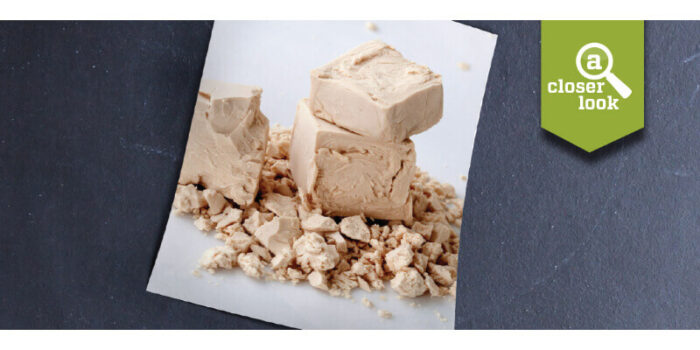Pectin is a light colored powder used mostly in jams, jellies, fillings, juices, drinks and baked products. Pectin is used for its gelling property which helps give a jelly-like consistency and improves the texture of drinks. It’s also used as a stabilizer in fruit juices and dairy drinks to help preserve the structure and prevent the separation of particles within the drink. It is also used as a fat substitute in baked goods.
How is pectin made?
Pectin is found naturally in certain fruits. The best sources for commercial pectin production are citrus peel, apple and sugar beet solid residue (after being pressed for its juice); all are by-products of juice and sugar production.
The peels or residue are transferred into a tank filled with hot water, mixed with a mineral acid (enzymes can be used as well) and left for a few hours until the pectin is extracted into the water. At that point, the water is filtered to remove the solid residue. The solution is concentrated in an evaporator, causing some of the water to be removed from the solution.
The solution is mixed with alcohol (ethanol or isopropanol) which causes the pectin to separate from the water. The pectin is washed with more alcohol which removes impurities, and then it is dried and ground.
Each batch of semi-finished pectin is tested for its gelling property and then mixed with other ingredients according to the testing results to ensure similar gelling power in each batch; this process is known as standardizing.
Is pectin kosher?
If the agricultural raw materials used for pectin are grown in Israel there are restrictions that may apply.
It is necessary for the enzymes used to aid the extraction process to be kosher, as well as all the ingredients used to standardize the pectin.
The alcohol is also a kosher concern. Ethanol can be derived from grapes (non-kosher), lactose (dairy), wheat and barley (chometz).
The OK recommends using only pectin with a reliable kosher certification.
Rabbi Hendel is a member of the OK Kosher Vaad HaKashrus.


 EN
EN  ZH
ZH  KR
KR  BR
BR  ES
ES  IN
IN  IL
IL 




